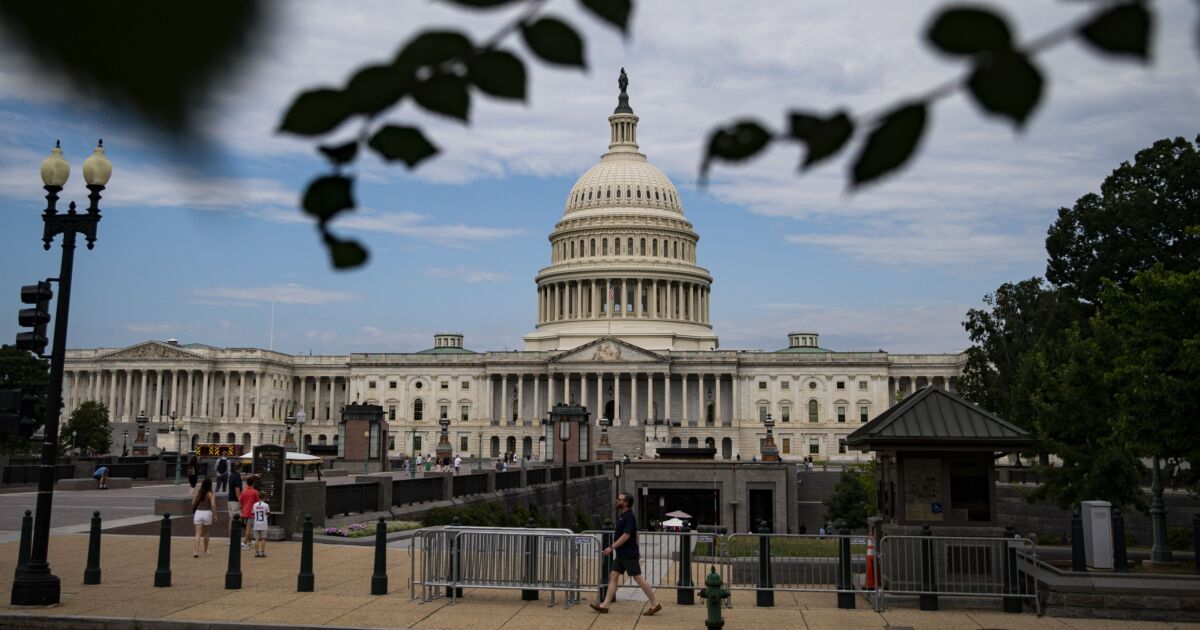The Corporate Transparency Act passed both Houses of Congress with bipartisan support in 2021 and went into effect on Jan. 1, 2024. Since then, it has been declared unconstitutional by one court and is the subject of lawsuits in at least three other courts.
While it did not garner much awareness at the beginning, the American Institute of CPAs, the National Association of Enrolled Agents, and a number of preparer organizations have been speaking out against its filing requirements and the effect they have on small businesses and those who assist them.
And at a congressional hearing held Tuesday to kick off Small Business Week, Roger Harris, president of Padgett Business Services, predicted massive noncompliance with the act’s beneficial ownership information filing requirements if the rules remain as they currently are.
The CTA requires “reporting companies” — defined as corporations, limited liability companies, or other similar entities registered to do business in the U.S. — to file a beneficial ownership information report with the Treasury’s Financial Crimes Enforcement Network. Beginning Jan. 1, 2024, reporting companies created or registered to do business in the United States before Jan. 1, 2024, must file by Jan. 1, 2025. Reporting companies created or registered to do business in the United States in 2024 have 90 calendar days to file after receiving actual or public notice that their company’s creation or registration is effective.
The 23 exemptions from the filing requirement include tax-exempt entities, credit unions, and public utilities, with the major exemption for large operating companies. A large operating company is one which employs more than 20 full-time employees in the U.S.; filed a federal income tax return showing more than $5 million in in gross receipts or sales, including receipts or sales of other entities owned by the entity and through which the entity operates; and has an operating presence at a physical location in the U.S.
FinCEN estimates there will be approximately 32 million reporting companies in the first year of the reporting requirement and approximately 5 million new reporting companies each year thereafter.
While individually they are small, collectively they represent a major portion of the American economy, according to Harris, who estimated that the 61.6 million small business employees in the U.S. comprise nearly 46% of employees nationwide.
“These are the businesses and entities that will primarily be impacted by the BOI reporting requirement,” he said — and the majority of these small businesses do not have the internal capacity to track and follow the many regulations and compliance requirements that fall on their businesses.
“Small-business owners who get into the business to do the one thing they love are also required to do 99 other things they hate,” he remarked in testimony before the House Committee on Small Business on Tuesday. And while most legislation has small-business exceptions, the CTA specifically targets small businesses.
Harris pointed out that the act’s requirements do not reflect the reality of businesses’ relationship with their tax professionals and other third-party service providers. They will likely have annual or slightly more often communication with them, but will not interact with them on a weekly or monthly basis.
“If a beneficial owner’s driver’s license is renewed, has a name change, or a change in residential address, the requirement to notify FinCEN within 30 days will not be top of mind and would lead to rampant noncompliance,” Harris warned. “Furthermore, third-party service providers are not privy to those changes or made aware of them on a regular basis.”
“While FinCEN argued in its final rule that the reporting company is ultimately responsible for the filing and third parties will be certifying on their behalf, the reality is that the third party may also be subject to the penalties and additional protection is needed to encourage third parties to help,” he said.
Harris suggested that FinCEN work more closely with the Internal Revenue Service to better understand how to educate the tax professional industry, as well as to provide joint guidance and examples, as is common with more complicated tax rules that help empower tax pros to be part of the solution.
Among the examples of where more clarity is needed, Harris cited substantial control of family members, business closers, and changes in number of employees that cause a business to move in and out of the BOI requirements.
“I was encouraged by members on both sides of the aisle,” Harris said after the hearing. “They recognized that something has to change, and hopefully it will lead to a better bill to make it work for everybody. As I left, someone handed me a text of a bill introduced this morning to repeal the CTA. It’s uncertain how far it will go, but it’s an indication that the attitude toward the CTA is changing.”


 Accounting1 week ago
Accounting1 week ago
 Finance1 week ago
Finance1 week ago
 Economics6 days ago
Economics6 days ago
 Finance1 week ago
Finance1 week ago
 Economics1 week ago
Economics1 week ago
 Economics1 week ago
Economics1 week ago
 Personal Finance5 days ago
Personal Finance5 days ago
 Economics4 days ago
Economics4 days ago












